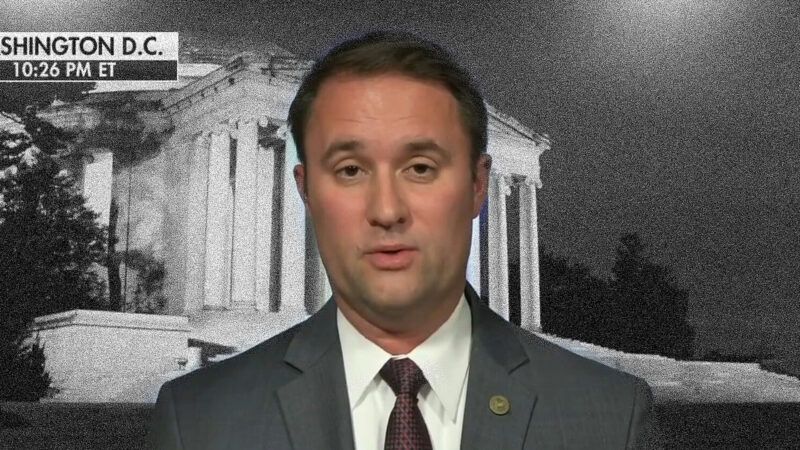New Virginia Attorney General Fires Entire Conviction Integrity Unit
Miyares' office says the conviction integrity unit is being expanded. Time will tell if it will have the independence and resources to succeed.

Virginia's newly elected Republican attorney general, Jason Miyares, fired about 30 staffers after taking office last week, including the office's entire conviction integrity unit.
The shake-up at the attorney general's office included canning attorneys who worked on issues like dangerous housing conditions, scams that target the elderly, and civil rights abuses. Miyares has promised to reverse what he's called a "criminal-first, victim-last" mindset.
A spokesperson for Miyares' office says the conviction integrity unit, created by former Virginia Attorney General Mark Herring in 2021, will still exist and is being broadened to include special investigations and cold cases. It will be led by former Arlington prosecutor and Democrat Theo Stamos.
Conviction integrity units, also known as conviction review units, operate within prosecutors' offices to investigate old cases for errors or misconduct that may have led to a wrongful conviction. The first one started in Dallas in 2007. There are now around 45 across the country, mostly in major cities.
As I wrote in 2019, conviction review units "are an acknowledgment that public officials can suffer from tunnel vision, confirmation bias, professional ambition, and bureaucratic self-preservation. Left unexamined, these failings can lead police and prosecutors, especially in an adversarial justice system, to dismiss the possibility that they put the wrong person behind bars."
Wrongful convictions are not a hypothetical concern. The National Registry of Exonerations reported that there were 129 exonerations in 2020. Of those, conviction integrity units secured 61. There have been 375 DNA exonerations in the U.S. since 1989, according to the Innocence Project.
But conviction integrity units need resources and independence to function properly. In some jurisdictions, work at units ground to a halt after the election of new district attorneys who were disinterested in exposing rotten work by their own office.
The appointment of Stamos to head the unit may appear like a bipartisan olive branch, but there's a bit of history there. Stamos was primaried and defeated in a close race for Arlington's commonwealth attorney by Parisa Dehghani-Tafti, who was part of a national trend of well-funded progressive candidates challenging incumbent prosecutors from the left. Criminal justice reform advocates criticized Stamos for prosecuting minors for petty offenses and supporting cash bail.
Miyares supports legislation that would allow police to ask the Virginia Attorney General's Office to prosecute crimes when local prosecutors like Dehghani-Tafti refuse to.
"If you're not going to do your job, let Virginians have a backup plan in the attorney general," Miyares told The Washington Post.
Still, Miyares told the Post that he won't stomach police abuse and is open to so-called pattern and practice investigations into police departments:
Miyares, who is the son of a Cuban immigrant, said he was sensitive to abuse by police after hearing his uncle relay a story of being detained and abused by Cuban authorities shortly after the Bay of Pigs invasion. He said his uncle was subject to a mock execution.
"I'm a passionate believer in individual dignity and not abusing that—least of all by government," Miyares said.
A spokesperson for Herring said the firings will "be a significant loss to the mission of the Office of Attorney General."
"These are dedicated and professional public servants who do important work, like investigate wrongful convictions, protect Virginians' civil rights, help to ensure free and fair elections, and prevent human trafficking and opioid abuse," the Herring spokesperson told the Richmond Times-Dispatch.
As he was on his way out of office, Herring announced earlier this month that police in Virginia Beach used forged DNA evidence in interrogations to coerce confessions or cooperation in at least five cases.


Show Comments (27)